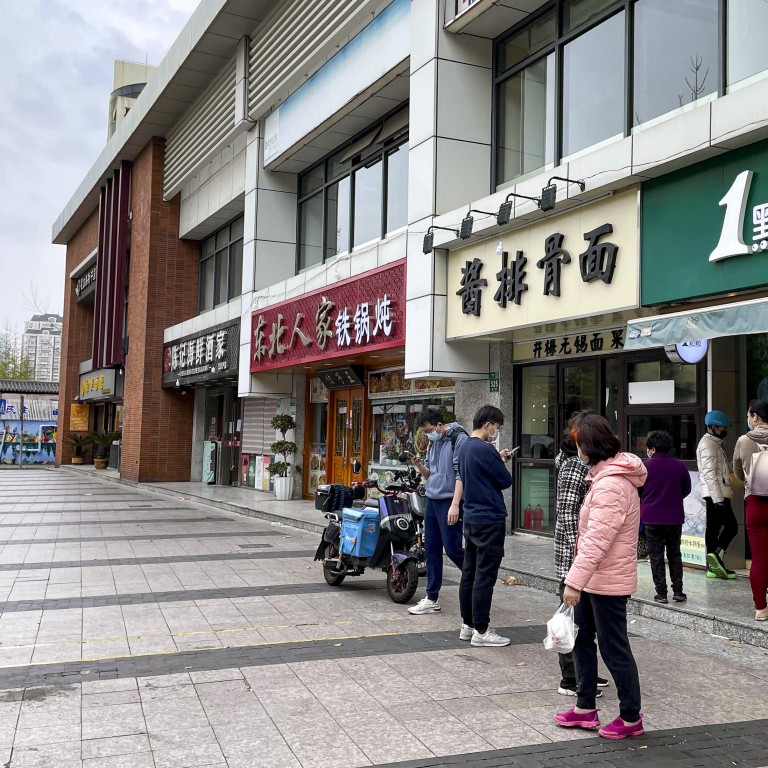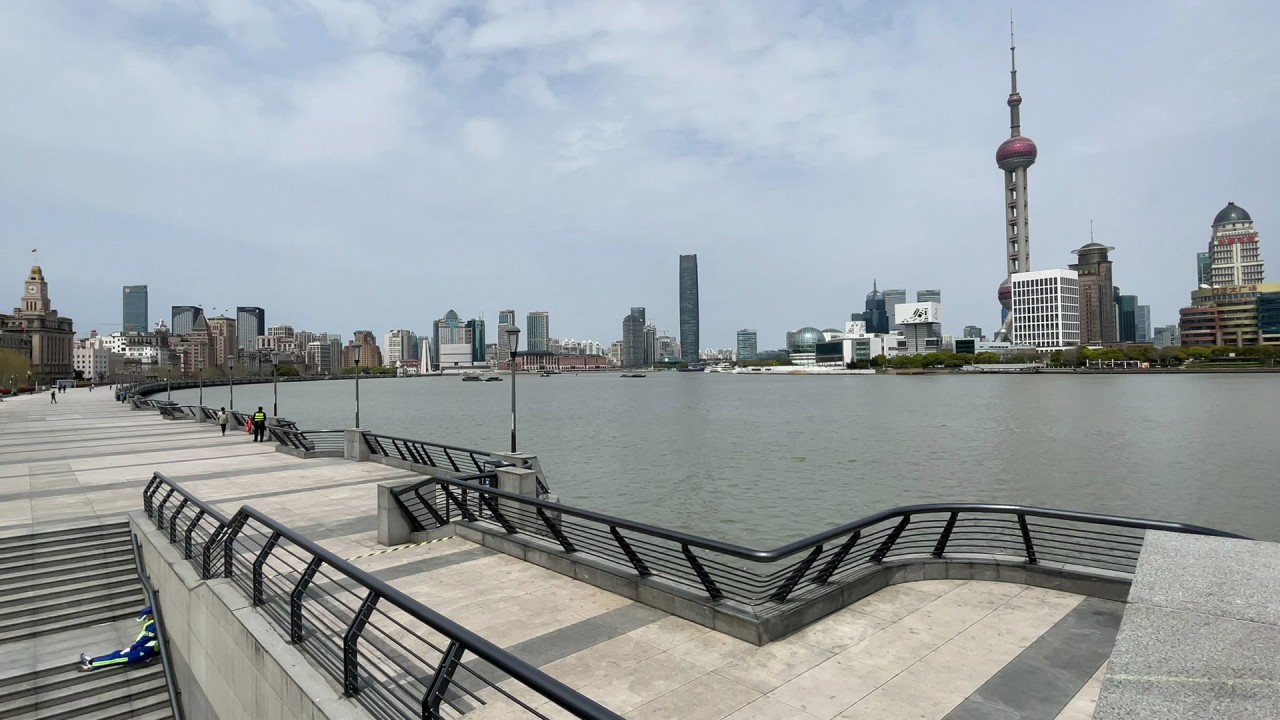
Shanghai government may extend Pudong lockdown beyond Friday as Covid-19 infections surge, say sources
- The lockdown of the area of 5.7 million people had been due to expire tomorrow, as Puxi, to the west of the river, starts its four-day shutdown
- But only a small number of residential compounds and commercial areas classified as low-risk will be allowed to reopen, say two local government sources
But only a small number of residential compounds and commercial areas in Pudong classified as low-risk will be allowed to reopen, according to two local government sources with knowledge of the matter.
The sources said the decision to keep most of Pudong sealed off, was a result of the surge in infections – largely asymptomatic – revealed by mass testing.
Local officials have yet to decide how long the extension will last, but sources said a step-by-step approach would be taken to gradually lift restrictions on most residential compounds, retailers and manufacturing sites.
“We will work out a plan to lift the lockdown in a scientific and orderly manner,” he said. “As Puxi goes into lockdown, the area with an even larger population of 16 million and a bigger geographic size, the situation will become more complicated. We will do our utmost to speed up screening for [Covid-19] cases.”
He apologised for his government’s failure to contain the recent outbreak, admitting it had been ill-prepared for the virulence of the Omicron variant.
“We sincerely accept your criticism and are working hard to improve it,” Ma said.
His remarks came after Shanghai Communist Party boss Li Qiang pledged to go all-out to eliminate the virus entirely during a government conference on Wednesday evening.
The phased lockdown, announced by Shanghai government on Sunday evening, represented a U turn by the city’s leaders.
By Thursday, Shanghai had reported about 32,000 Covid-19 infections since this wave of the outbreak started on March 1. Most of them were asymptomatic.
The tidal wave of cases has put Shanghai’s much-lauded containment strategy at risk. The city, with a population of 25 million, had reported less than 300 coronavirus infections since the outbreak began in Wuhan, central China’s Hubei province, in December 2019.
“Shanghai authorities are under pressure to cap the soaring infection numbers, guided by the zero-Covid policy,” said Wang Feng, chairman of financial service group Ye Lang Capital in Shanghai. “The costs will be huge, but [the full lockdown] may turn out to be the only option.”
Shanghai said just a couple of weeks ago that it would not impose a citywide lockdown due to the role the city played in national economy.
But the municipality made a 180-turn on Sunday evening when it announced that a phased lockdown would be implemented to bring the pandemic under control.
Pudong, home to Yangshan deep water port, the larger of the city’s two international airports and the mainland’s biggest stock exchange, is touted as a pioneer zone for the country’s economic reform.
The Shanghai Disneyland resort, Tesla’s massive Gigafactory3 and the flagship factory of China’s largest chip maker, Semiconductor Manufacturing International Corporation (SMIC), are all located on the eastern bank of Huangpu River.
The streets of Pudong have been deserted since Monday morning as residential compounds in the area of 1,200 sq km (465 sq mile) were cordoned off. Panic buying quickly set in as people rushed to snap up food and daily essentials before the area was completely sealed off.
Factories and offices in Pudong were told to shut unless they were able to operate in a “closed loop”, in which fully vaccinated staff are forbidden from any contact with outsiders.
On Thursday, a residential area in the Huangpu district of Puxi was like a ghost town ahead of the formal start of the lockdown. Those people who had ventured out were carrying groceries, and a few pedestrians lined up at a beef noodle restaurant – their only remaining option for a takeaway lunch.
Xue Wenying, a retiree, said she had been out every day this week to stock up on food, spending around 700 yuan (US$110) each time.
“It is exhausting, it’s not only about money. Look at these oranges I just bought, they cost me 70 yuan,” she said. “The society will be out of control if this situation continues.
“I doubt any of the food I stored will be wasted. But if you don’t store enough food, you’ll be panic-stricken if you cannot go out.”
Shanghai’s government said it would offer a package of incentives including tax rebates and cuts worth 140 billion yuan (US$22 billion), subsidies and rent waivers to support virus-hit businesses.
But the relief measures may not be enough to save the thousands of troubled companies whose orders have shrunk to almost nothing in the past few weeks.
Shanghai set an economic growth target of 5.5 per cent for 2022, compared to gross domestic product (GDP) expansion of 8.1 per cent last year.
But most analysts predict it will miss the goal, owing to the virus control measures.



